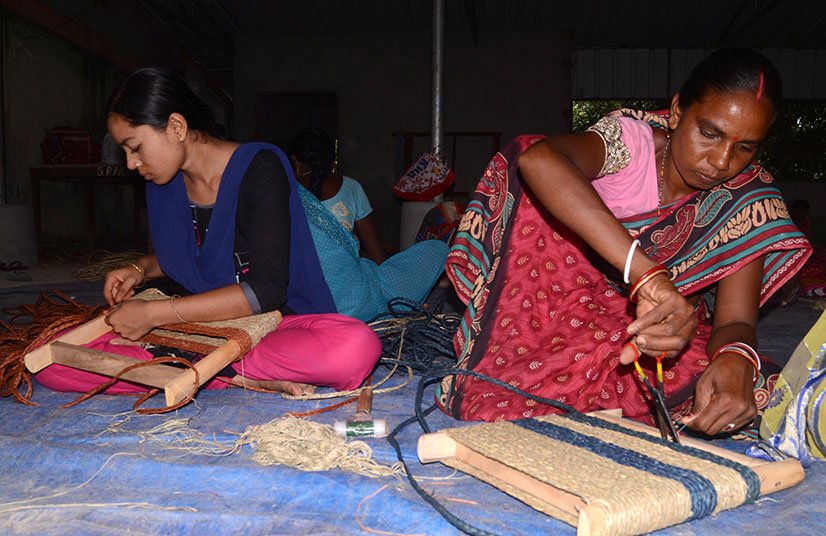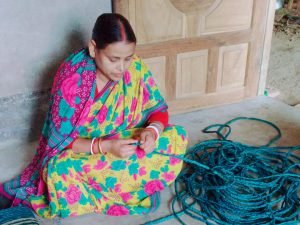Sabai Grass
SABAI GRASS is one of the fine natural fibres that has the potential to be coloured or dyed. The local individuals are dependent on the collection of a variety of leaves and grasses. These leaves and grasses are the main source of income for the local individuals for a period of time. The only product made from Sabai grass was ropes. Now it is used to make baskets, cots, coasters, decorative boxes, wall hanging and furniture.
Making Process
The process of Sabai Grass is done in the Easter and Central part of India. Popularly known as Sabai is one of the old techniques of Indian culture.
The steps followed in Sabai Grass process is given below:
- The grass is cut from the Peepul Tree.
- The bundle of grass is placed in the sun for 3 to 4 days for drying.
- Once the grass is dried, the bundle of grass is cut in layers.
- Then weaving is done.
- Now finally painting and stitching is done as per the product requirement.

Beneficiary

Mirdolo mahato
Mirdolo mahato is from a family of farmers. She was trained in the Sabai making process and now independently can manufacture Sabai products. She is married and has three children. Her husband also helps her in the process. This interest in making the Natural Fibre product has made her one of the bread winners of the family. She earns around Rs. 300 per day
